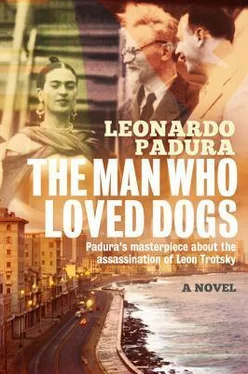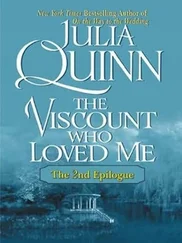But it was only now that he found out that, from the first time that Raymond left his wife in Büyükada, Natalia had sensed what was coming: Jeanne was a young woman gifted with a languor that served to contrast her husband’s bullishness, and every cell of Liova’s body pulsed with his twenty-three years, even when he had given himself over body and soul to the cause. Because of that, while his wife conveyed the news that Jeanne would travel to Paris with the intention of breaking off her relationship with Raymond, and that Liova was planning to go off somewhere else with her, the revolutionary understood how little he had worried about his son’s needs, although he immediately thought that the work of so many months — the Pyrrhic and painful benefit extracted from upsets and defections — could go down the tube, dragged by the egotistical impulse of a man and a woman. And that same night, unable to contain himself, he reprimanded Liova for his sentimental affair, unforgivable in a fighter.
Fortunately, Raymond’s reaction was deeply French, according to Natalia, and he allowed Jeanne to go live with Liova, who was already planning to move to Germany. Lev Davidovich then understood that he had no alternative but to accept his son’s decision: although the young man’s spirit of sacrifice was immeasurable, he could not demand that he invest his youth in a lost island. What would hurt him the most, he wrote, would be losing the only man with him on whom he could unload the weight of his frustrations, the only one from whom he could receive sincere criticism, and the only one whom he could trust to never be the one tasked with stabbing him, serving him poisoned coffee, or sending the bullet through his head that, sooner or later, would take his life.
But his concern over Liova’s departure was momentarily overshadowed by a little-known event that gave Lev Davidovich a bad premonition: the German elections, carried out on September 14, 1930, had turned Hitler’s National Socialist Party into the country’s second most popular. The leap had been to 6 million votes from 800,000 in 1928. Perplexed before the strange political irresponsibility of the German Communists, Lev Davidovich read that the Communists were celebrating their own increase from 3 million to 4.5 million votes, and declared that the Hitlerite upturn was the swan song of a petit bourgeois party condemned to failure. Several months earlier, in one of the letters with which he used to bombard the Soviet party’s Central Committee, he had already warned them about the dangerous establishment of National Socialism in Germany, which he saw as the bearer of an ideology capable of coalescing all of that “human dust” of a petit bourgeoisie crushed by the crisis and eager for revenge. Since then, he’d begun to insist on the need for a strategic alliance between Communists and Socialists to stop the process that could bring the Hitlerites to power. But the response to his premonitory cry of alarm had been the order from Moscow, channeled through the Comintern, that the German party should abstain from any alliance with Socialists and democrats.
Never more than at that moment had Lev Davidovich felt the weight of his sentence. Shut away on an island lost in time, his ability to act was reduced to writing articles and to an organization of scattered followers, when in reality he should have been in the center of events that, he could feel it in his skin, involved the fate of the German working class, the European revolution, and perhaps of the Soviet Union itself. He knew that it was necessary to mobilize the consciousness of the German left, since it was still feasible to avoid the disaster being drawn over the sky of Berlin. Didn’t anyone notice that if his path wasn’t closed off, Hitler would come to power and the Communists would be his first victims? What was happening in Moscow? he asked himself. He sensed that something dark was brewing behind the Kremlin’s red walls. What he still could not imagine was that very soon he would hear, from the highest towers of the Muscovite fortress, the first howls of a macabre creature capable of terrorizing him.
The dense air caressed the skin and the sparkling sea hardly emitted a lulling murmur. There, one could feel how the world, on magical days and moments, gives the deceptive impression of being an affable place, tailor-made to the dreams and strangest desires of man. Memory, imbued with that relaxed atmosphere, managed to become lost, and bitterness and sorrows fell into oblivion.
Seated on the sand with my back leaning against the trunk of a casuarina tree, I lit a cigarette and closed my eyes. There was an hour to go until the sun went down, but, as was becoming a habit in my life, I was in no rush and had no expectations. I practically had none, and practically without the practically. The only thing that interested me at the time was enjoying the gift of twilight’s arrival, the fabulous moment at which the sun closes in on the silvery gulf and draws a fiery trail on the surface. In the month of March, with the beach practically deserted, the promise of that vision was the cause for sudden calm within me, the state of closeness to the balance that comforted me and still allowed me to think in the palpable existence of a small happiness tailor-made to my meager ambitions.
Prepared to wait for the sunset in Santa María del Mar, I had taken out the book I was reading from my backpack. It was a volume of short stories by Raymond Chandler, one of the writers at that time, and still today, to whom I was solidly devoted. Getting them from the most unimaginable places, I had managed to make an almost complete collection of Chandler’s works out of Cuban, Spanish, and Argentine editions, and besides five of his seven novels I had several short story collections, including the one I was reading that afternoon, called Killer in the Rain . It was a Bruguera edition, printed in 1975, and along with the title story it had four others, including one called “The Man Who Loved Dogs.” Two hours before, while I was making the journey by bus to the beach, I had started reading the book right at that story, attracted by such a suggestive title that directly touched on my weakness for dogs. Why, amid so many other possibilities, had I decided to take that book on that day and not a different one? (I had at my house, among the many recently obtained and waiting to be read, The Long Goodbye , which would end up being my favorite of Chandler’s novels; Rabbit, Run by Updike; and Conversation in the Cathedral by the already excommunicated Vargas Llosa, that novel that a few weeks later would make me shake with pure envy.) I think I had picked Killer in the Rain completely unconscious of what it could mean and simply because it included that story that features a professional killer who feels a strange predilection for dogs. Was everything organized like a game of chess (another one) in which so many people — that individual whom I would name, precisely, “the man who loved dogs” and I, among others — were pieces in a game of coincidence, of life’s whims or of the inevitable intersections of fate? Teleology, as they call it now? Don’t think I’m exaggerating, that I’m trying to make your hair stand on end, nor that I see cosmic conspiracies in each thing that has happened in my damned life; but if the cold front that had been predicted for that day had not dissolved with a fleeting rain shower, barely altering the thermometers, it’s possible that on that March afternoon in 1977 I would not have been in Santa María del Mar, reading a book that, by coincidence, contained a story called “The Man Who Loved Dogs,” and with nothing better to do but wait for the sun to set over the gulf. If just one of those circumstances had been altered, I would have probably never had the chance to notice that man who stopped a few yards away from where I was to call out to two magisterial dogs who, just at first sight, dazzled me.
Читать дальше











